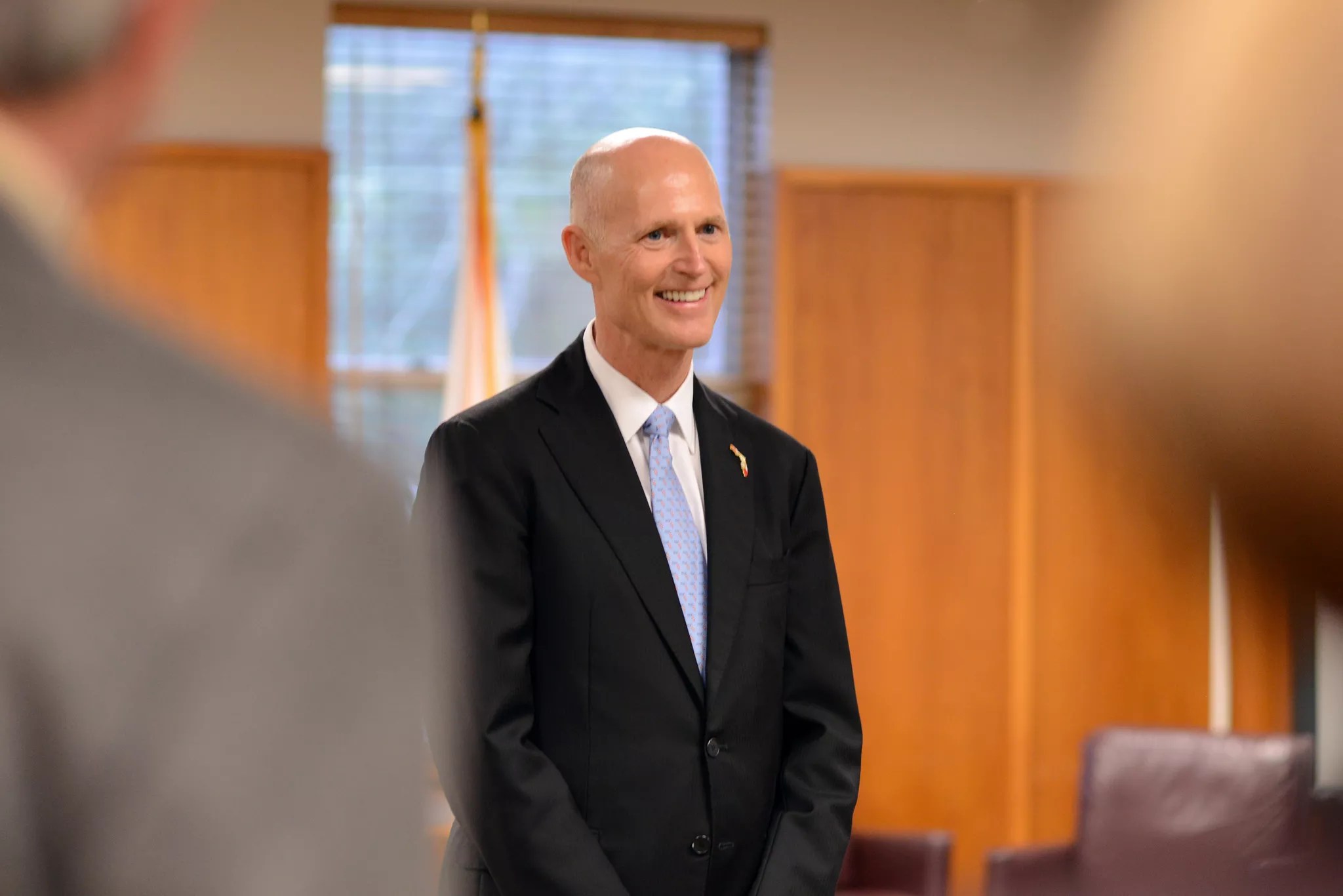
Florida Fish and Wildlife Commission via Flickr

Audio By Carbonatix
When you’re pals with the dumbest person ever elected U.S. president, it’s pretty easy to persuade the leader of the free world to do some stupid shit that makes you look good. Take, for instance, Florida Gov. Rick Scott: After Donald Trump’s secretary of the interior, Ryan Zinke, announced a plan this week to open every inch of American coastline to offshore oil-drilling, Scott claimed he called members of the Trump administration and, basically overnight, persuaded them to rewrite the rule so that it doesn’t affect Florida, America’s 49 other states be damned.
That plan seems to have worked for barely a day. Because most D.C. politicians are also lawyers, a whole lot of other state leaders quickly realized the decision to exempt Florida was probably illegal and violated vital rule-making sections of the federal Administrative Procedures Act, which mandates that changes such as this one not be “arbitrary or capricious,” among other things.
To rectify the problem, it appears Zinke will likely either need to add more states to the exemption list, remove Florida, or face significant legal challenges, all so companies such as ExxonMobil can poison more fish and birds a few miles off the coast of Oregon.
Taking #Florida off the table for offshore drilling but not #California violates the legal standard of arbitrary and capricious agency action. California and other coastal states also rely on our beautiful coasts for tourism and our economy. I believe courts will strike this down https://t.co/xWyB69F7Gg
— Ted Lieu (@tedlieu) January 10, 2018
Let’s zoom out for a second: Scott absolutely, positively does not give a shit about the environment. He infamously banned state officials from using the term “climate change” (he denies this, but come on), takes gobs of money from the pollution-heavy Florida sugar industry, had an extremely questionable financial stake in the Sabal Trail oil
What Scott does care about is winning a 2018 Senate race, so when he announced he had successfully “lobbied” Zinke to protect Florida’s coastline, Florida Sen. Bill Nelson, a man as exciting as a gym sock who could very well lose to Scott next year, immediately cried that the move smacked of political gamesmanship.
Florida’s environment and economy shouldn’t be used as political football to be tossed around. Today, I filed legislation to permanently ban drilling off of Florida’s coast. pic.twitter.com/QRmPl3RCMd
— Bill Nelson (@SenBillNelson) January 10, 2018
More important: Barring any future changes, Zinke’s move was probably not legal.
As multiple media figures and politicians have pointed out already, his “exempting” Florida is almost certainly not allowed under federal law. As ThinkProgress reported yesterday, decisions such as this one are governed by something called the Administrative Procedures Act, which requires that any major policy change be subjected to a 60-day public comment period first.
That certainly didn’t happen here: A mere two days after Zinke announced his plan, he randomly tore Florida out of the process.
But there’s an even more obvious legal principle set forth in the Administrative Procedures Act: That the decision
In a vacuum, Zinke’s decision to protect the Florida shoreline due to the state’s heavy economic reliance on its coasts for tourism actually makes a ton of sense – the problem is, that argument makes sense for tons of other states, too, including California, New Jersey, Maryland, and the Carolinas. Even lowly Delaware has beaches, and they get nothing.
“Two days in, the Trump administration has shown us exactly what their offshore drilling proposal is all about and it has nothing to do with listening to local and state voices, economics, or science. This is about playing politics with our coast,” Sierra Weaver, senior attorney with the Southern Environmental Law Center, said in a statement. “If it was anything but that, Secretary Zinke would have announced tonight that he was removing Virginia, North Carolina, South Carolina, and Georgia, where offshore drilling has already been rejected by local and state voices.”